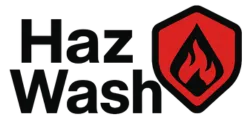
Insurance vs. Financing for Trauma Cleanup in Detroit (2025 Guide) | HazWash™
Custom HTML/CSS/JAVASCRIPT


This site is not a part of the Facebook website or Facebook Inc. Additionally, this site is NOT endorsed by Facebook in any way. FACEBOOK is a trademark of Meta Platforms, Inc.
All services performed by HazWash LLC in compliance with federal, state, and local hazardous waste regulations.
EGLE Waste Generator ID #: MW0056722
USDOT #: 4475685
MC #: 1766982
DOT Hazmat / RCRA License #: 74695
HAZWOPER 40 Technician #: 8125-6
Bloodborne Pathogen (BBP) #: 55381-9490179312
IICRC Odor / Trauma / Crime / Drug Tech #: 70222848
Call/Text Us 24/7/365 @ 1-844-HAZWASH (1-844-429-9274)
Address: 1783 Brentwood Troy, MI 48098
Privacy Policy | Terms & Conditions
Copyright 2025® - HazWash